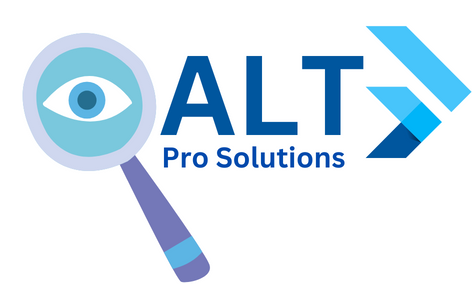
"HALT for Pharmaceutical Quality and Audit Compliance"
a wide range of services to pharmaceutical firms in meeting regulatory and compliance needs of global markets
Quality Assurance
Analytical Research

Audits & Compliance
Process &Technology

Learning Management
Computer Systems Validation

Technical Assessment

Automation
Audits
An FDA audit, Food and Drug Administration ensures companies comply with regulations for food, drugs, and more. Inspectors check for compliance with GMPs, GLPs, GCPs, and other rules to ensure products meet safety and quality standards. Non-compliance can lead to enforcement actions like warning letters or product seizures, prompting regular audits for ongoing compliance.
A QALT team mock FDA audit acts as a proactive approach for companies to evaluate their regulatory compliance status, pinpoint areas requiring enhancement, and bolster their preparedness for potential FDA inspections.
QALT specializes in Quality Assurance and Quality Control, offering consulting services in regulatory affairs, documentation, validation, and providing recommendations grounded in a comprehensive understanding of FDA guidelines and protocols.
QALT Mock Audit
A QALT mock FDA audit is a simulated inspection or review conducted to assess company or organization readiness for an actual FDA audit. Instead of being carried out by FDA inspectors, a mock audit is led by QALT auditors who have expertise in FDA
QALT Compliance Evaluation
Evaluate the company's adherence to FDA regulations, encompassing Good Manufacturing Practices (GMPs), Good Laboratory Practices (GLPs), and other pertinent standards.
QALT Identify Discrepancies
Pinpoint any deficiencies or areas of non-compliance that necessitate rectification before an impending FDA inspection.
QALT Assess Procedures
Scrutinize the efficacy of internal protocols, documentation systems, and quality assurance mechanisms to ensure alignment with regulatory standards.
QALT Staff Training
Offer training sessions for personnel engaged in regulatory compliance to enhance their understanding of roles and responsibilities in preparation for an FDA inspection.
QALT Enhances Preparedness
Assist the company in enhancing its preparedness and response capabilities for managing an FDA audit effectively, thereby mitigating compliance risks and regulatory repercussions.
Lab Controls
Lab Controls encompass the assessment and assurance of the dependability, precision, and uniformity of laboratory operations and protocols within the pharmaceutical sector. These measures play a pivotal role in upholding the quality, safety, and effectiveness of products.
QALT specializes in Lab Controls, dedicated to maintaining the precision, reliability, and regulatory compliance of all testing processes carried out within a pharmaceutical laboratory. This commitment is fundamental in safeguarding the quality and safety of pharmaceutical products.
QALT Training and Qualification of Personnel
Providing training and verifying the proficiency of laboratory staff engaged in testing procedures is imperative. This encompasses instruction on pertinent protocols, techniques, and equipment usage, along with continual competency evaluations.
QALT Laboratory Facilities and EnvironmenT
Maintaining appropriate laboratory facilities and environmental conditions is crucial for enabling accurate and reliable testing. This includes controlling temperature, humidity, cleanliness, and implementing protocols to mitigate the risk of contamination.
QALT Investigation of Out-of-Specification (OOS) Results
Establishing protocols to investigate and document out-of-specification test outcomes to determine their underlying causes and avert future instances. This process may entail conducting root cause analyses and enacting corrective and preventive actions (CAPAs).
QALT Investigation of Out-of-Specification (OOS) Results
Preparing for regulatory inspections and internal audits involves maintaining meticulous documentation, adhering to standard operating procedures (SOPs), and ensuring compliance with regulatory mandates.
QALT MethodS ASSESSment
Verifying the appropriateness of analytical methods utilized in the laboratory for their designated purpose entails ensuring their accuracy, precision, specificity, and robustness. Also supports for comparison and lifecycle management of methods
QALT Instrument Management
Supports documentation from qualification to retirement of instruments. Regular calibration and maintenance of laboratory instruments are imperative to guarantee the accuracy and reliability of test results. This process encompasses sophisticated analytical instruments like HPLC, LC-MS, GC, ICP and many more...
QALT Quality Control MANAgement
Analysis of quality control samples is essential for monitoring the long-term performance of analytical methods and instruments. These samples are usually maintained and stored at required conditions to meet regulated reconciliation requirements.
QALT Data Integrity ASSESSMENT
Ensuring data integrity and reliability in laboratory settings necessitates meticulous documentation practices. This includes utilizing electronic data systems equipped with robust controls to uphold data security and traceability.
CAPA Managment
Corrective and Preventive Action (CAPA) management stands as a pivotal component within pharmaceutical quality management systems. Its primary objective is to guarantee the safety, efficacy, and quality of pharmaceutical products, ultimately safeguarding public health and complying with regulatory standards.
QALT's expertise in CAPA management aids organizations in delivering high-quality products through a safe and effective approach, aligning with regulatory requirements.
qALT Identification of Issues
The process commences by identifying deviations, discrepancies, or issues within pharmaceutical manufacturing or quality control processes. This can be achieved through audits, inspections, customer feedback, or internal quality control protocols.
QALT Root Cause Analysis (RCA)
Upon identifying an issue, the subsequent step involves conducting a comprehensive root cause analysis to ascertain the reasons behind its occurrence. Commonly utilized RCA techniques such as fishbone diagrams, the 5 Whys method, or fault tree analysis are instrumental in uncovering the underlying causes.
QALT Corrective Actions
Upon conducting a thorough root cause analysis, corrective actions are being implemented to address the immediate issue and prevent its recurrence. These actions may encompass adjustments to processes, retraining of personnel, recalibration of equipment, or updates to standard operating procedures.
QALT Preventive Actions
In addition to resolving the current concern, it is essential to establish preventive measures to avert the recurrence of similar issues. This entails introducing modifications to processes, protocols, or systems to preemptively manage risks.
QALT Documentation and Reporting
All Corrective and Preventive Action (CAPA) activities necessitate comprehensive documentation, encompassing specifics of the problem, root cause analysis, implemented corrective and preventive measures, assigned personnel, and designated timelines for execution. This meticulous documentation is crucial for regulatory adherence and the facilitation of continuous enhancement initiatives.
QALT Review and Verification
Corrective and Preventive Action (CAPA) activities necessitate regular reviews to guarantee their efficacy and adherence to regulatory standards. This process may encompass subsequent audits, inspections, or internal assessments to confirm that the corrective and preventive measures have been executed as planned and are yielding the intended outcomes.
QALT Continuous Improvement
Pharmaceutical Corrective and Preventive Action (CAPA) management constitutes an iterative process designed for ongoing enhancement. Insights gained from CAPA initiatives should be leveraged to refine and fortify quality management systems, processes, and protocols with the objective of averting future complications and elevating standards of quality and compliance.
OSS
Operational Support Systems (OSS) are specifically crafted to bolster diverse operational facets in pharmaceutical enterprises, encompassing manufacturing, quality control, regulatory compliance, and supply chain management, among others.
QALT supports the enhancement of efficiency, compliance, and competitiveness in the pharmaceutical sector by offering integrated solutions to streamline intricate and heavily regulated operational procedures.
qALT Supprt for Manufacturing Execution Systems (MES)
It aids in overseeing and supervising the manufacturing processes within pharmaceutical production facilities. This includes monitoring production schedules, coordinating equipment and resources, ensuring compliance with standard operating procedures (SOPs), and gathering real-time data for analysis and reporting purposes.
QALT Support for Quality Management Systems (QMS)
Oversee all facets of quality control and assurance in pharmaceutical manufacturing operations, encompassing document control, change management, deviation handling, corrective and preventive actions (CAPA), audits, training documentation, and adherence to regulatory mandates such as Good Manufacturing Practice (GMP) standards.
QALT Support for Electronic Batch Records (EBR)
digitize and automate the recording and management of batch production data, replacing traditional paper-based batch records. They provide a centralized platform for capturing, reviewing, and approving all batch-related activities, ensuring compliance with regulatory requirements and facilitating batch release processes.
qALT Supprt for Laboratory Information Management Systems (LIMS)
Manage laboratory workflows, sample testing, data analysis, and reporting within pharmaceutical quality control laboratories. This system aids in optimizing laboratory operations, maintaining data integrity, and adhering to regulatory requirements such as Good Laboratory Practice (GLP) and Good Documentation Practice (GDP).
QALT Support for Regulatory Information Management (RIM)
They oversee regulatory submissions, registrations, licenses, and compliance initiatives across diverse regions and markets. Their responsibilities include preparing, submitting, tracking, and reporting regulatory documents to ensure adherence to evolving regulatory standards in a timely manner.
QALT Support for Supply Chain Management (SCM)
It facilitates pharmaceutical companies in enhancing and overseeing their supply chain operations, encompassing procurement, inventory control, distribution, and logistics. This software aids in guaranteeing the timely availability of raw materials and finished products, thereby reducing costs and mitigating risks linked to supply chain interruptions.
DI Management
Deviation investigation (DI) pertains to the methodical examination of any deviation from predetermined procedures, standards, or specifications within pharmaceutical manufacturing, testing, packaging, or distribution processes. Deviations may arise from factors including equipment malfunction, human error, environmental conditions, or process deviations. These inquiries play a pivotal role in upholding product quality, safeguarding patient well-being, and adhering to regulatory standards.
qALT Identification of Deviation
The initial step entails promptly identifying and documenting any deviation once it is observed or detected. Such deviations may encompass deviations from standard operating procedures (SOPs), specifications, batch records, or any pertinent documentation.
QALT Evaluation of Impact
Upon identification, the impact of the deviation on product quality, safety, efficacy, and regulatory compliance is evaluated. This assessment includes gauging the severity and potential ramifications of the deviation.
QALT Immediate Corrective Action
In situations demanding swift action to avert further divergence or potential harm, prompt corrective actions are implemented. These measures may include halting production, isolating affected products, or introducing temporary strategies to alleviate risks.
QALT Root Cause Analysis (RCA)
The root cause of the deviation is meticulously examined to identify the fundamental factors that led to it. Various tools and methodologies, such as the 5 Whys, fishbone diagrams, fault tree analysis, or failure mode and effects analysis (FMEA), are commonly employed in this investigative process to unveil the root cause.
Investigating pharmaceutical deviations under the Quality Assurance and Leadership Team (QALT) framework aids in promptly identifying and resolving issues, thereby preventing their reoccurrence and reducing risks to both patient safety and product efficacy.
QALT Corrective and Preventive Actions (CAPA)
Upon completion of the root cause analysis, corrective and preventive actions (CAPAs) are formulated and executed to rectify the underlying issue and forestall its reappearance. Such measures encompass enhancements to processes, adjustments to procedures, training initiatives, equipment upgrades, or any necessary corrective actions.
QALT Documentation and Reporting
A thorough report on the deviation investigation is compiled, encompassing all facets of the deviation, investigation outcomes, as well as corrective and preventive action (CAPA) plans and their execution. This documentation is vital for regulatory adherence, internal quality assurance, and ongoing enhancement endeavors.
QALT Review and Approval
The deviation investigation report undergoes review and approval by pertinent stakeholders, such as quality assurance, regulatory affairs, production, and any other relevant departments.
Suresh Anumakonda,
Founder & CEO
Professional with 22 years of experience in Quality and Management for PharmA
- Expert in handling GxP activities which includes audits , quality incidents, compliance towards site operations including equipment qualification and CSV.
- Recognized for achievements, operational excellence awards, and guiding teams through audits.
- Skilled in method development, validation, transfers, deviations, investigations, and site compliance activities.
- Successfully lead teams through multiple USFDA, Polish, Canada and global surveillance audits with zero critical observations.
- Handled site compliance issues of a 250+ associates y with strong acumen towards quality and culture.
- Work exposure with global and reputed companies like Novartis, Janssen(J&J), Mylan, and Wockhardt.

Ensures pharmaceutical products to meet safety and quality standards, promoting public health and shaping the future of medicine.
Let's Begin our Journey together!

REACH US for a complimentary assessment
Head Office: Kukatpally, Hyderabad, Telangana, India -500072
Branch Office: Kakinada, A.P, India -533001
website: www.qaltprosolutions.com
© 2024 All Rights Reserved,